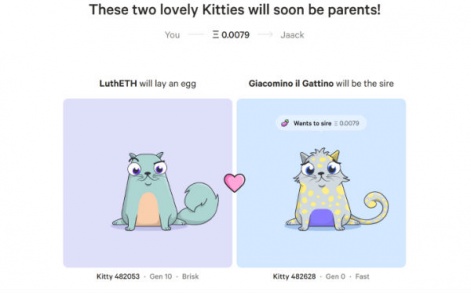When a founding CEO leaves their billion-dollar company, it’s worth taking note.
Maybe, like DeNA’s founding CEO Tomoko Namba, they’re leaving for family reasons.
But more likely, like Rovio’s Mikael Hed, as the initial success of Angry Birds expanded into animated films while the underlying games business became more difficult with the rise of free-to-play, it was a case of ‘time to move on’.
Of course, most founding CEOs hang on. Supercell’s Illka Paananen doesn’t look like he’s going anywhere soon, while King’s Riccardo Zacconi is still in place two years on from the Activision Blizzard acquistion.
So where does that leave our analysis of Gabe Leydon’s departure from MZ?
Jumped not pushed
Some things are clear. Originally called Addmired and subsequently renamed as Machine Zone, now MZ, the company was Leydon’s individual creation and domain.
Until a massive $380 million Series C investment raise in September 2014, the company was effectively bootstrapped until it had the products, data analysis and marketing technology to start printing money by spending less per user in advertising than those users spent in-game.

But as has subsequently become apparent, running two F2P mobile games such as Game of War and Mobile Strike strained the limits of the ecosystem in terms of available ad inventory, and perhaps MZ’s profitability close to breaking point.
My passion has always been in the real-time technology that we’ve developed through MZ’s games and smart cities platform.Gabe Leydon
Still, even folllowing JPMorgan’s big investment, the company remained majority owned by its staff, mainly Leydon. He called the shots in every sense of the word.
So the news he was leaving to focus his attentions on taking internal division turned spin-out Satori to the blockchain shouldn’t be dismissed lightly.
“My passion has always been in the real-time technology that we’ve developed through MZ’s games and smart cities platform,” Leydon said in the statement announcing his departure.
“I’m excited to focus on what Satori can do when paired with blockchain technology.”
Moving onto the blockchain
Announced back in 2016, it was never made apparent (to me at least) what MZ’s Satori (originally called the RTplatform) exactly was or did.
Famously, it was testing real-time bots that could visualise the New Zealand public transportation system, although it wasn’t clear if it actually did so as a commercial service, nor how complex the New Zealand public transportation was as an example of real-time data smarts.
Even less transparent was the 2017 Live Open Data Challenge, which offered a prize pool of $1 million for the best uses of live data using Satori but seemingly didn’t announce any winners.
Yet the combination of Satori with the blockchain - the AI mesh system will be running on the Hedera Hashgraph blockchain with its in-system economy using the forthcoming LIT token - is an exciting and lucrative enough opportunity in terms of the millions it could raise through an initial coin offering for Leydon to hand over running the day-to-day of MZ and focus full-time on what is now a standalone company.
Of course, shiny new technology is always attractive. But equally, the way MZ pivoted its business in 2017, subsequently seeing Game of War and Mobile Strike drop out of the US top grossing top 100 for the first time ever, marked the end of an era even if the developer’s remaining game Final Fantasy XV: A New Empire remains a strong top 20 performer.
Trickle become a flood
It’s not just Leydon who appears to have had enough of mobile games.
Plenty of entrepreneurs who rode the mobile games wave and sold out one (or more) companies and then looked around for something new to do are being attracted back into the games space by the potential of blockchain.
Plenty of entrepreneurs who rode the mobile games wave are being attracted back into the game space by the potential of blockchain.
Zynga founder Mark Pincus has dialled down his control of Zynga so he’s more free to pursue personal investments, such as his recent involvement with CryptoKitties’ developer Axiom Zen funding.
Ex-CEO Unity David Helgason meanwhile is similarly active in and outside of blockchain, and Backflip’s founder Julian Farrior is also getting back into the game.
Pioneering blockchain games developers include Jirba/AdColony founders Randy Saaf and Octavia Herrera, who now run LA studio Lucid Sight, while Jared Psigoda, the onetime CEO Chinese F2P mobile publisher R2Games, is now running blockchain game platform BitGuild.
Less well known perhaps but Animoca Brands, Tapinator, iCandy, Gumi, Pixowl, Cloud Alliance and Asobimo are all mobile games outfits experimenting with blockchain games, while blockchain start-ups such as Alto.io, Reality Gaming and ALAX have strong previous experience in the mobile game space.
Mobile messaging apps such as LINE, Kakao and Kik are also heavily involved in the space.

Of course, this isn’t to say that most mobile games companies are interested in what remains a highly nascent, financially niche and legally controversial sector.
But, as we saw with the rise of indie PC games on Steam five years ago, and more recently, a sudden enthusiasm for virtual reality games, as the mobile market continues to mature into a “winners-take-most” market, any alternative looks increasing attractive. Even if you’re the CEO and founder of a multi-billion-dollar mobile games company such as MZ.
You can keep up to date with the blockchain games space on our sister-site BlockchainGamer.biz. You can also learn about the sector in person with special sessions from key blockchain experts at Pocket Gamer Connects Helsinki on September 11th to 12th 2018.





















